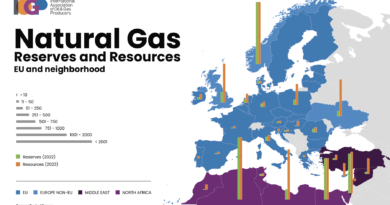
Empowering consumers for the green transition – combatting greenwashing and obsolescence
More than half of EU consumers have environmental impact in mind when shopping1. This has led to a proliferation of green marketing, with 75% of products on the market carrying an implicit or explicit environmental claim2, resulting in consumers’ distrust and confusion. And rightfully so! Recently, a screening of green claims by consumer authorities revealed that 42% of claims were potentially misleading and 59% were without easily accessible evidence3.
Meanwhile, EU citizens want long-lasting, repairable products. Consumers are almost three times more likely to choose products with the highest durability on offer – given that they have reliable information4. Despite this, evidence of shortening product life spans is increasing. Data suggests that the average lifetime of small consumer electronics has decreased by up to 20%5. It has somehow become widely accepted that even the most high-tech devices last no more than a few years.
To combat deceptive claims and short-lived products, the EU Commission has recently released its proposal Empowering consumers for the Green Transition. The proposal aims to help consumers make more sustainable purchases through better product information, and to protect consumers from greenwashing and early obsolescence. But to what extent does the proposal really empower people to consume more sustainably and navigate the green transition?
Reliable and truthful green claims and labels
The proposal contains much-needed rules to limit misleading green claims and labels: importantly, it forbids the use of general green claims which are not backed by robust methods proving environmentally excellent performance, such as the EU Ecolabel. It also requires that all sustainability labels rely on minimum credibility and transparency principles, such as independent verification.
But will market surveillance authorities and companies be able to easily identify whether labels comply with strict rules? Instead of relying on lengthy case-by-case assessments, an EU registry where reliable labels are listed and easily identified would support efficient enforcement.
Carbon neutral claims represent one of the most widespread claims on products today, found on anything from food items to cross-continental flights, but they are also one of the most misleading and require urgent attention. Carbon neutral claims in the current proposal would still be allowed if the measurement method is stated. However, to claim carbon neutrality, companies usually rely on offsets, but from a scientific perspective carbon neutrality can only be achieved at a global level.6 What’s more, offsets cannot replace actual emission reductions7. Despite this, marketing is winning the battle as surveys show8 that the majority of consumers are misled by the term “carbon neutral” and are induced to believe that a carbon neutral product is environmentally friendly. Already now, many companies are facing court cases9 over their misleading climate claims and several have already lost the case. Therefore, the proposal should directly prohibit carbon neutrality claims based on offsets. Companies should instead transparently communicate their actual emission reductions and remaining carbon footprint.

Purchasing products that last
As our dependence on electronics grows, so must our action to counter their environmental consequences. With only 17% of global e-waste actually recycled10, this proposal is an opportunity to address some of these issues by integrating the right to repair within it.
Using devices for as long as possible can be difficult, as they become obsolete earlier than their expected lifetimes. For example, when manufacturers stop making software updates available for a device, this can render them useless – even if the hardware is still functional. This proposal seeks to tackle these so-called early obsolescence practices through requirements such as to inform if a product contains a feature that will hinder repair. To help consumers avoid such deception, products subject to practices which foreseeably reduce the lifespan of the good should not be marketed.
The introduction of a repairability index would allow shoppers to understand how repair-friendly their products are. For the index to be effective however, price must be included as a scoring criterion, given that consumers are easily dissuaded by the steep cost of repair compared to the price of a new product. Further information on the product’s expected lifetime and protection through product guarantees would reinforce this provision. Consumers should be aware of what could happen during their product’s lifespan, like whether the seller will refuse to perform a repair on a product that has previously been repaired outside the original manufacturer’s network. Placing an obligation on producers to grant access to other information such as the availability of parts and tools, repair manuals, and information on software updates is equally important to give customers the whole picture of what they’re buying.
Shifting the burden
Tightening up the proposal’s loose ends is a step towards a circular economy with consumers at the forefront. Yet changing consumption patterns is the responsibility of all, not just individual consumers. Policymakers have the responsibility to provide the right ecosystem so that consumers can change their consumption patterns and have the right tools at hand. Policy must be coupled with corporate responsibility, as a consumer’s freedom of choice is subject to what’s on offer. If sustainable choices are not the default, and we are continuously bombarded with false advertising, then consumers are neither free nor empowered.
1 – EU Consumer Conditions Scoreboard : 2019 edition
2 – Consumer Market Study on environmental claims for non-food products, 2014
3 – Screening of websites for ‘greenwashing’, European Commission, 2021
4 – Sustainable consumption | European Commission, 2022
5 – Planned obsolescence: exploring the issue: European Parliament, 2016
6 – ADEME, Utilisation de l’argument de neutralité carbonne dans les communications
7 – Client Earth, Legal risks of carbon offsets
8 – Vzbv, Climate-neutral products: 89 percent for clear rules and a tested seal & ACM, Consumers find claims regarding carbon offsets unclear
9 – Clean Energy Wire, Company climate claims in court
10 – Global E-Waste – Statistics & Facts | Statista, 2022





